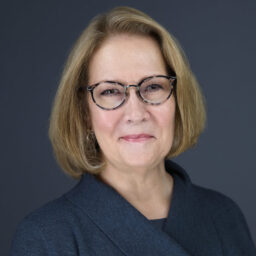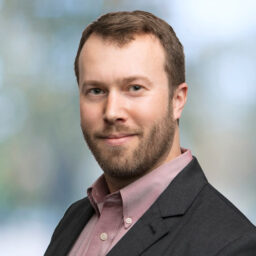Hertz Foundation Announces 2022 Hertz Fellows
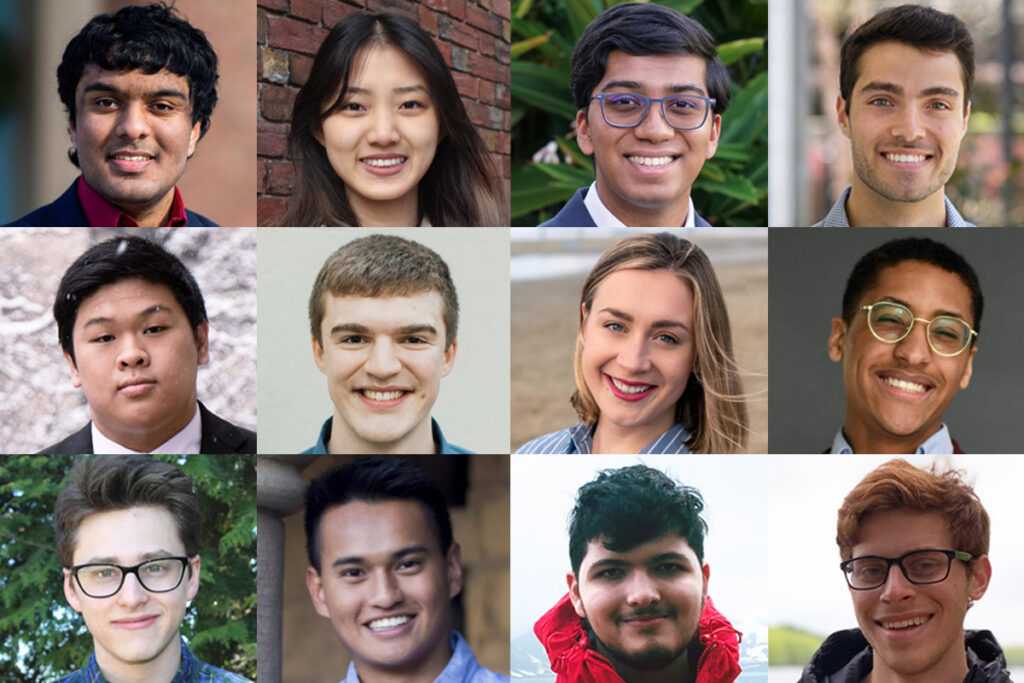
The Fannie and John Hertz Foundation today announced the recipients of the prestigious 2022 Hertz Fellowships in applied science, mathematics and engineering.
This year’s fellowships will fund 13 remarkable doctoral students who demonstrate extraordinary potential to become foremost leaders in their fields and tackle the most significant challenges facing the nation and the world. The fellowship will directly support researchers interested in defending the nation’s digital infrastructure against cyberthreats, developing more efficient electronics that can help reduce dependence on fossil fuels, and creating biomedical devices to aid rehabilitation and cancer diagnostics.
“To remain a global leader in science and technology, our nation requires enterprising minds capable of inventing creative solutions to real problems,” said Robbee Baker Kosak, president of the Hertz Foundation. “We’re thrilled to be able to support these promising innovators and fuel their research at such a pivotal time in their careers.”
Since 1963, the Hertz Foundation has granted fellowships empowering the nation’s most promising young minds in science and technology. Hertz Fellows receive five years of funding, valued up to $250,000, which offers flexibility from the traditional constraints of graduate training and the independence needed to pursue research that best advances our security and economic vitality.
In addition to receiving financial support, Hertz Fellows join a multigenerational, intellectual community of peers, which offers a unique engine for professional development and collaboration. Hertz Fellows have access to lifelong programming, such as mentoring, events, and networking, which has led them to form research collaborations, commercialize technology, and create and invest in early-stage companies together, among other opportunities.
Among the past recipients of the Hertz Fellowship are Nobel laureate John Mather, a NASA astrophysicist and project scientist for the James Webb Space Telescope; Kim Budil, director of Lawrence Livermore National Laboratory; Nathan Myhrvold, founder and CEO of Intellectual Ventures, founding director of Microsoft Research, and former chief technology officer at Microsoft; Kathleen Fisher, deputy office director for the Defense Advanced Research Projects Agency Information Innovation Office; and neuroscientist Ed Boyden of the Massachusetts Institute of Technology, who is developing optogenetic technologies to understand and treat brain conditions such as Parkinson’s disease.
The Hertz Foundation is dedicated to expanding and accelerating the U.S. pipeline of scientific and technical leadership. Through a rigorous and time-tested selection process, led by Hertz Fellow Philip Welkhoff, director of the malaria program at the Bill & Melinda Gates Foundation, the fellowship selection committee sought out candidates demonstrating deep, interconnecting knowledge and the extraordinary creativity necessary to tackle problems that others can’t solve.
“We face increasingly daunting challenges to our national security and defense, including climate change, response to pandemics, health care, and food security,” said Welkhoff. “John Hertz believed that to overcome such challenges our nation needs a vibrant, innovative cadre of researchers in the applied sciences with deep and broad knowledge, grit, and who are creative, curious and determined to make a difference. The 13 newest Hertz Fellows embody these values in unique and individual ways, and I am delighted to welcome them into the Hertz community and see what they achieve in the years ahead.”
The 2022 class joins a community of fellows comprising some of the nation’s most noted science and technology leaders, whose transformative research and innovation impact our lives every day. Hertz Fellows have increased the accessibility of ultrasounds with the invention of a low-cost handheld device and helped prove the big-bang theory of the universe. They are using machine learning to investigate disparities in COVID-19 testing and develop collaborative research tools. They have saved lives with a simple test that reveals fake pharmaceuticals, are influencing companies to institute environmentally sound practices, and are developing aircraft powered by hydrogen fuel cells for energy-efficient, lower-cost transportation.
Over the foundation’s 59-year history of awarding fellowships, more than 1,200 Hertz Fellows have established a remarkable track record of accomplishments. Their ranks include two Nobel laureates; recipients of eight Breakthrough Prizes and three MacArthur Foundation “genius awards”; and winners of the Turing Award, the Fields Medal, the National Medal of Technology and the National Medal of Science. In addition, 48 are members of the National Academies of Sciences, Engineering and Medicine, and 32 are fellows of the American Association for the Advancement of Science. Hertz Fellows hold over 3,000 patents, have founded more than 375 companies, and have created hundreds of thousands of science and technology jobs.
Introducing the 2022 Hertz Fellows
Fellows are listed with their graduate university affiliations and fields of interest.
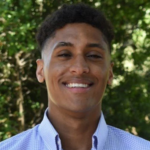
Roderick Bayliss wants to design more efficient and power-dense electronics, a step toward reducing the world’s dependence on fossil fuels. Currently a graduate student at the University of California, Berkeley, Bayliss has already carried out work developing novel types of power converters — devices that change the current, voltage or frequency of electrical energy — and inductors, which store energy. He received both his bachelor’s degree and his master’s degree in electrical engineering from MIT.

Nikhil Bhattasali is interested in understanding biological intelligence to build better artificial intelligence. Inspired by animal nervous systems, he assembles computational models that can control embodied agents and robots. Currently a NeuroAI Scholar at Cold Spring Harbor Laboratory, Bhattasali conducts highly interdisciplinary research combining machine learning, systems neuroscience and computer science. Bhattasali received both his bachelor’s degree in symbolic systems and his master’s degree in computer science from Stanford University. He will be joining the doctorate program in computer science at New York University in fall 2022.
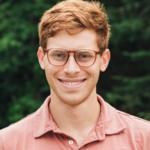
Alexander Cohen studies how waves interfere with each other — a topic of mathematics that has far-reaching implications across computer science, physics and number theory. Cohen is a first-year graduate student at MIT, and he graduated from Yale University in 2021 with a dual bachelor’s and master’s degree in mathematics. He was awarded a Goldwater Scholarship for his work and an honorable mention for the Morgan Prize — one of the highest undergraduate honors in mathematics.

Wenjie Gong is interested in the intersection between quantum information and physical systems. Her goal is to develop scalable, stable and noiseless quantum devices that can push technology past the classical era. Gong is currently finishing her bachelor’s and master’s degrees at Harvard University, where she has already made significant inroads into understanding quantum phenomena in the fundamental constituents of matter. She will begin her doctorate in quantum information theory at MIT in fall 2022.
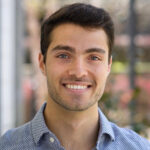
Jonah Herzog-Arbeitman is a condensed matter physicist working toward the discovery of new states of matter and the development of quantum materials. He hopes to tackle high-temperature superconductivity — the challenge of keeping superconductors stable at anything other than extreme cold temperatures. Herzog-Arbeitman studied physics, math and poetry as an undergraduate at Princeton University. Now a first-year graduate student at Princeton University, he is active in mentorship programs that demystify academia and the path to a career in research.
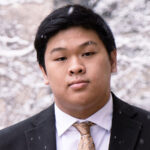
David Li aims to develop transformative technologies that enable new biological insights, approaches and therapies. Throughout his undergraduate career at MIT, Li worked on tools for gene editing, directed evolution and COVID-19 diagnostics. Li will spend time abroad in the U.K. as a Marshall Scholar, studying the structure of amyloid filaments at the MRC Lab of Molecular Biology through Cambridge University before pursuing a doctorate in bioengineering at Stanford University. He received a bachelor’s degree in electrical engineering and computer science from MIT in 2022.
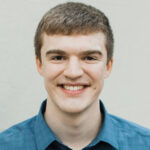
Daniel Longenecker studies scattering amplitudes in quantum field theory and string theory at Princeton University, where he is a first-year graduate student. His goal is to contribute to the reformulation of quantum field theory by discovering new principles and mathematical structures. During his time as an undergraduate at Cornell University, where he received his bachelor’s in physics and physics education in 2021, Longenecker discovered a new connection between string theory and mathematical linguistics.
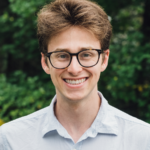
Scott Moroch is an experimental physicist pursuing research at the intersection of atomic, nuclear and particle physics. Using tabletop experiments, Moroch hopes to shed new light on the standard model of particle physics. He is currently a graduate student at MIT and received his undergraduate degree in physics from the University of Maryland in 2021.
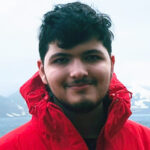
Vivek Nair develops cutting-edge cryptographic techniques to defend digital infrastructure against sophisticated cyberthreats. Currently a graduate student at the University of California, Berkeley and a researcher at Cornell’s Initiative for Cryptocurrencies and Contracts, Nair is also the founder of Multifactor.com and holds multiple patents for secure user authentication technologies. He was the youngest-ever recipient of bachelor’s and master’s degrees in computer science at the University of Illinois Urbana-Champaign.
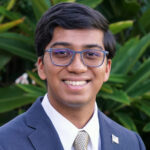
Syamantak Payra is a scientist and engineer who is passionate about creating new biomedical devices to solve unmet health care needs. A senior at MIT, Payra has created digital fibers for electronic garments that can assist in diagnosing illnesses and has contributed to next-generation space suit prototypes that could better protect astronauts on spacewalks, among many other projects. He will begin his doctorate at Stanford University in fall 2022.
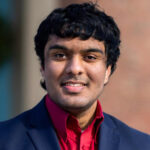
Shuvom Sadhuka wants to apply mathematical algorithmic principles to the biological sciences to help create more efficient, private and robust tools for analyzing biological — especially genomic — data. In particular, he hopes to leverage ideas from algorithmic privacy, machine learning and data structures to create safe and efficient methods to accelerate biomedical research. He will receive his bachelor’s degree in computer science and statistics in spring 2022 from Harvard University and plans to pursue a graduate degree in computer science at MIT.

An MD-PhD student in biophysics at Stanford University, Emily Trimm is interested in combining genomics with innovative biophysical techniques to address some of the biggest unanswered questions in human disease. Her current research uses multiomic data from high-altitude species, such as guinea pigs, alpine ibex and snow leopards, to study how the cells lining veins and arteries respond to physical force. She received her bachelor’s degree in physics and biophysics from the University of Pennsylvania in 2018.
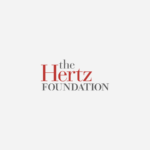
About the Hertz Foundation
The Fannie and John Hertz Foundation identifies the nation’s most promising innovators in science and technology and empowers them to pursue solutions to our toughest challenges. Launched in 1963, the Hertz Fellowship is the most prestigious fellowship program in the U.S., fueling more than 1,200 leaders, disruptors and creators who apply their remarkable talents where they’re needed most — from our national security to the future of health care. Hertz Fellows hold 3,000+ patents, have founded 375+ companies, and have received 200+ major national and international awards, including two Nobel Prizes, eight Breakthrough Prizes, the National Medal of Technology, the Fields Medal and the Turing Award. Learn more at HertzFoundation.org.
